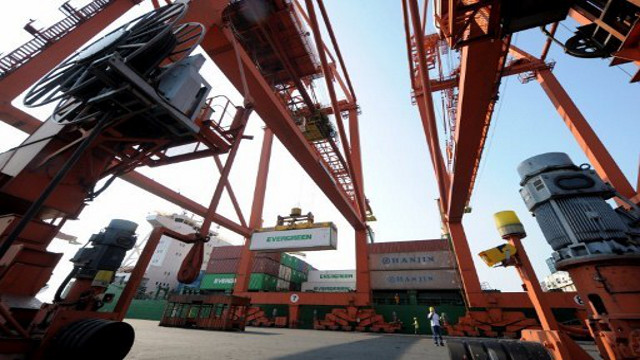SUMMARY
This is AI generated summarization, which may have errors. For context, always refer to the full article.

MANILA, Philippines – Trade agreements are still limited because the issue of trade openness remains a battle for hearts and minds in the Philippines, an economist said.
Speaking at the Aid for Trade event on March 22, economist Ramon Clarete said that the diversity of views regarding trade openness remain a crucial stumbling block for trade agreements to fully blossom.
“Philippines is definitely not a homogenous country in terms of political views. There are groups in the country that are for trade and there are groups that say we should not open up to international trade,” he said.
Groups who lobby for trade openness include the Semiconductor and Electronics Industries of the Philippines, Inc. (SEIPI), the country’s largest semiconductor and electronics organization. Electronics comprise the largest bulk of the country’s exports in 2012 with a share of 38%.
Groups who oppose trade liberalization, on the other hand, include labor unions from domestic industries who fear the entrance of new competition that may translate to losses in profit and eventually losses of jobs, among others.
They fear that their products or services are not as price-competitive as the imported ones.
Trade reforms
These differences in view on trade openness also affect implementation of reforms on trade openness and liberalization.
Implementation of reforms remains to be a problem in the country as several laws in the country only seem to be good in paper. One of the reasons for this, according to Clarete, is the strong civil society groups in the country that lobby for certain interests.
“These groups influence policies toward trade openness and capacity,” he said while adding that these interplay of interests in the society affects decisions of other countries in engaging in bilateral trade with the country.
This goes to show that trade openness as well as bilateral trade agreements are political as much as it is economic.
Case in point is the Philippines-Japan Economic Partnership Agreement (PJEPA).
Philippine Chamber of Commerce and Industry (PCCI) vice chairman Donald Dee said in a forum on Thursday, March 21, that the Philippine government needs to do a lot more especially in boosting competitiveness and crafting consistent export policies.
These measures when done properly, according to Dee, will lure more investments from Japanese firms. This can be applied with other foreign investors looking to invest in the country.
Aid for Trade is an initiative of the World Trade Organization (WTO) in 2005 to assist developing countries, with the engagement of aid organizations, to solve trade-related infrastructure issues. – Rappler.com
Add a comment
How does this make you feel?
![[In This Economy] A counter-rejoinder in the economic charter change debate](https://www.rappler.com/tachyon/2024/04/TL-counter-rejoinder-apr-20-2024.jpg?resize=257%2C257&crop=267px%2C0px%2C720px%2C720px)
![[Vantage Point] Joey Salceda says 8% GDP growth attainable](https://www.rappler.com/tachyon/2024/04/tl-salceda-gdp-growth-04192024.jpg?resize=257%2C257&crop_strategy=attention)
![[ANALYSIS] A new advocacy in race to financial literacy](https://www.rappler.com/tachyon/2024/04/advocacy-race-financial-literacy-April-19-2024.jpg?resize=257%2C257&crop_strategy=attention)


There are no comments yet. Add your comment to start the conversation.